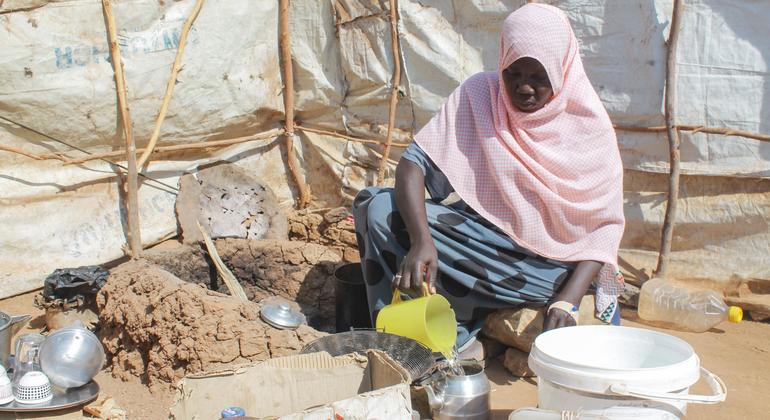The Sudanese Armed Forces (SAF) and the Rapid Support Forces (RSF) continue to perpetrate a systematic assault on human rights in Sudan, according to a warning from the UN High Commissioner for Human Rights, Volker Türk. This statement, made on Friday, comes amid growing global inaction in the face of the humanitarian crisis affecting the country, where hostilities between the two forces have plunged the Sudanese people into a state of despair and suffering.
Türk emphasized that the conflict, approaching its third year, has uprooted the lives of millions of Sudanese. In his message, he urged the warring parties to lay down their weapons and called on the international community to take effective measures. The human rights situation in Sudan is alarming: 12.6 million people have been displaced, 24.6 million face severe food insecurity, and nearly 17 million children have been left out of the school system.
The World Food Programme (WFP) has expressed serious concern, estimating that around 25 million Sudanese are on the brink of famine and classifying this conflict as the world’s largest hunger catastrophe. The struggle for control of essential economic resources, such as gold and gum arabic, has exacerbated the situation and become the driving force behind the conflict, fueled by international trade.
Human rights violations have been on the rise, with attacks on essential infrastructure and brutal reprisals against suspected collaborators of the opposition. Sexual violence has become widespread, and threats and harassment towards members of civil society are increasingly common, shrinking civic space and severely affecting freedom of information.
The crisis not only affects those remaining in the country; approximately 4 million Sudanese have crossed borders into neighboring countries, fleeing violence in search of safety. Many of these refugees have been victims of systematic human rights violations and face a life of desolation and loss.
The conditions of health services are equally alarming. The World Health Organization (WHO) has reported an increase in attacks on healthcare facilities, resulting in over 300 deaths and more than 270 injuries, while approximately 80% of hospitals in conflict areas remain closed. These circumstances have led to an increase in maternal and obstetric mortality.
Türk has called on the international community to ensure respect for human rights and to demand accountability for the multiple violations taking place. However, cuts in humanitarian funding have left organizations like UNHCR dealing with unmet basic needs, putting the survival of millions of people at risk. The reduction in funds limits access to clean water and increases the risk of diseases, creating a devastating cycle for displaced persons and refugees in Sudan.
via: MiMub in Spanish










